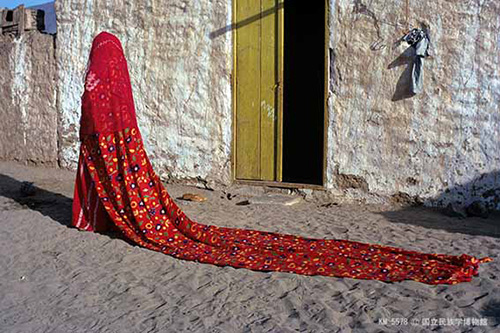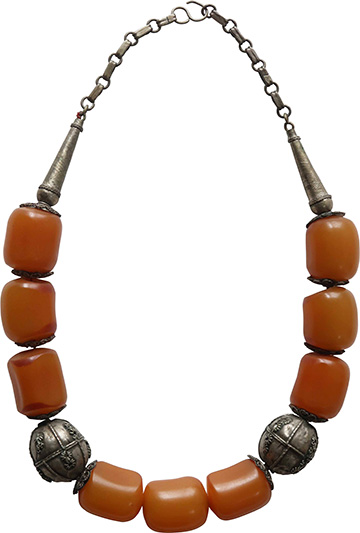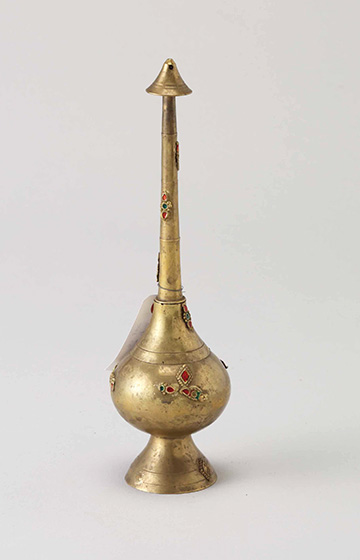Event Information 2023
Special Exhibition
The 1st Special Exhibition in 2023 ※
Arabian Fashion and Hospitality: Makeup, Incense and Perfumes, Dates and Coffee Culture Exhibition poster| Title | Arabian Fashion and Hospitality: Makeup, Incense and Perfumes, Dates and Coffee Culture |
|---|---|
| Period | March 23, 2023 ( Thu. ) - May 24, 2023 ( Wed. ) |
| Venue | Special exhibition room on the 2nd floor and Hall on the 1st floor |
| Organizer | Mineral Industry Museum, Akita University |
| Co-organizers | Motoko Katakura Foundation for Desert Culture and Muslim World League Japan Office |
| Special Collaborators | Heritage Commission, Ministry of Culture, Kingdom of Saudi Arabia, Wadi Fatima Social Development Center and King Faisal Center for Research and Islamic Studies |
| Support Projects | “Restudying ethnographic long-term field data and co-creating a digital cultural heritage with local Muslim communities in the Middle East and North Africa” (Principal Investigator: NAWATA Hiroshi, GRANT-IN-AID FOR SCIENTIFIC RESEARCH (A), FY2022-2023, JSPS 21H04372) and FY2022 Akita University Education and Research Project (Principal Investigator: NAWATA Hiroshi) |
※Click here for related events
Countries in the Middle East and Arabian Peninsula account for nearly 90% of Japan's crude oil imports. However, there are few opportunities to learn about the cultures of these countries. Therefore, in FY2022-2023, we planned two consecutive special exhibitions focusing on the various resources of modern Arabian countries that have rarely been introduced in Japan. The exhibitions focus on the use of materials such as metals and non-metals, inorganic and organic materials, their social value, historical distribution, and culture such as fashion and hospitality.
The second special exhibition, "Arabian Fashion and Hospitality: Makeup, Incense and Perfumes, Dates and Coffee Culture," introduces the fashion of women living in the Arabian Peninsula, from the materials and their places of origin, such as makeup implements, incense burners, and the fragrances used in them, to the history of exchange. The exhibition also explains the culture of dates, the fruit of the date palm, and Arabic coffee, both of which are indispensable to Arabian hospitality.
We would like to express our sincere appreciation to the organizations that allowed us to conduct field research in Saudi Arabia, as well as to all parties involved for their cooperation and special assistance in organizing this event.
Professor,
Graduate School of International Resource Sciences, Akita University
NAWATA Hiroshi, Ph.D.

Picture 1
Unmarried women used to wear a cloth called şumāda over their heads when they went out (Photographed by Motoko Katakura in 1971-1974, Saudi Arabia: KM_5578, Motoko Katakura Middle East Collection at National Museum of Ethnology, Osaka)

Picture 2
The dalla, a coffee pot (Motoko Katakura Foundation for Desert Culture collection)

Picture 3
Portable coffee cup holder and pottery coffee cup (Motoko Katakura Foundation for Desert Culture collection)

Picture 4
Silver necklaces with beads of amber (private collection)

Picture 5
Rose water brass jar (private collection)
Reference
Nawata, H. ed. (2019) Exploring 50 Years of Livelihood and Landscape Change in Wadi Fatima, Saudi Arabia: Ethnographic Collections of Motoko Katakura, a Japanese Female Cultural Anthropologist. Tokyo: Kawade-syobo, 181P.
Nawata, H. (2020) “Arabian Costumes in Silver and Gold,” Mineral Industry Museum Newsletter 17: 2-4.
Arabic version
Free admission Days
Education and Culture Week (Culture Day)
| Date | November 3, 2023 ( Fri. ) |
|---|
International Museum Day
| Date | May 18, 2023 ( Thu. ) |
|---|---|
| Remarks | It was proposed by the International Council of Museums ( ICOM ) in 1977 to appeal to citizens about the role of museums in society. |
Geology Day
"2023 Geology Day" Poster PDF| Date | May 10, 2023 ( Wed. ) |
|---|---|
| Remarks | Memorial Day of the publication of the first regional geological map, "Nihon-Yezo Chishitsuyouryaku no zu" (1:2,000,000) in 1876, which was made by Lyman, an American geologist with his colleagues. The Geology Division, Geographical Bureau was also established by Home Ministry on this day in 1876. |
The 63nd Science and Technology Week
| Date | April 22, 2023 ( Sat. ) and April 23, 2023 ( Sun. ) |
|---|---|
| Remarks | Science and Technology Week is held annually by the Ministry of Education, Culture, Sports, Science and Technology ( MEXT ) to promote science and technology. |
